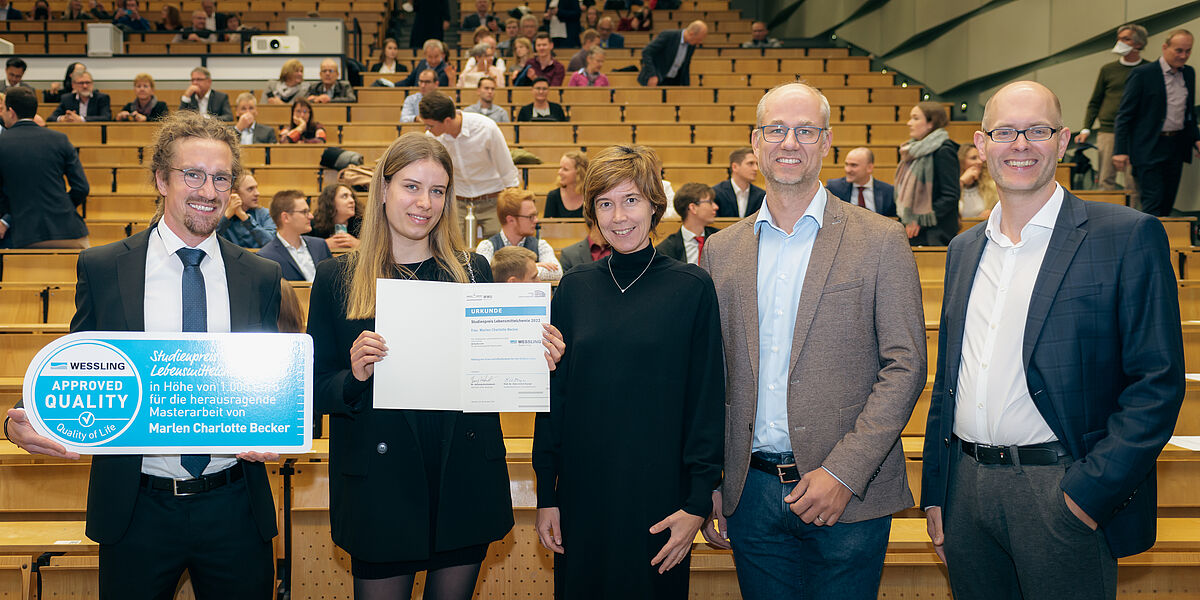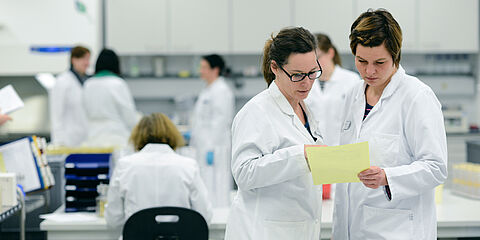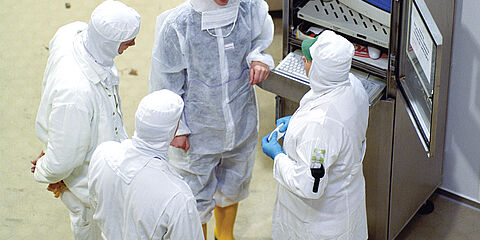Food Chemistry Study Award 2022: How healthy is my muesli?
Every year, the master’s graduates of the Department of Food Chemistry at Westfälische Wilhelms-Universität Münster look forward with anticipation to the presentation of the Food Chemistry Study Award. The prize offered by WESSLING, the international analysis and consulting company, is worth 1000 euros and honours the best master’s thesis of the year. Like previous years, considering the many high-quality final projects that were entered, the jury once again had its work cut out for it. The final winner was Marlen Charlotte Becker with her very convincing paper on the formation of furan and alkyl furans during hot extrusion.

Dr Henning Kuchenbuch, member of the jury and Head of Analysis at WESSLING, gave a straightforward example, “When you like to eat cereal for breakfast, there is a high chance you will come into contact with furan and alkyl furans.” This is because, in addition to grain-based ingredients, breakfast cereals can also contain so-called “heat-induced contaminants.” “And this includes furan and alkyl furans, which are formed during the production process”, food chemist Dr Henning Kuchenbuch further explained. Whether the muesli contains these substances, and in what quantity, is important to know as it may be harmful to health. For this reason, there is a high level of interest in better understanding the causes of formation as well as minimisation approaches to further optimise food safety in this area.
What causes furan content to rise in food:
Marlen Becker systematically examined in her master’s thesis the extent to which furan and alkyl furans are formed during hot extrusion, an important industrial processing operation, and which influencing factors play a role in. In addition to the temperature and water content of the cereal mixture, the influence of the raw materials used, and other food additives, was also analysed. The results show that increased temperature, a decrease in water content, but also some food additives, lead to an increase in the formation of furans.
The industrial joint research (iGF) project was supported by the German Federal Ministry of Economics and Climate Protection (BMWK). Based on the results, the next step will be to develop minimisation concepts for industrial processing to reduce furan content to a minimum and thereby further improve food safety.
Close cooperation between WESSLING and WWU
By awarding this study prize, internships, and places for master’s theses, WESSLING supports knowledge transfer from theory to practice on different levels. As an international company, WESSLING maintains close contact with universities, such as WWU and universities of applied sciences, participates in research and development projects, and also participates in DIN and technical committees, where it provides important impetus.
Your contact
- Pia Hustert
- +49 2505 89-0
- pia.hustert@wessling.de



